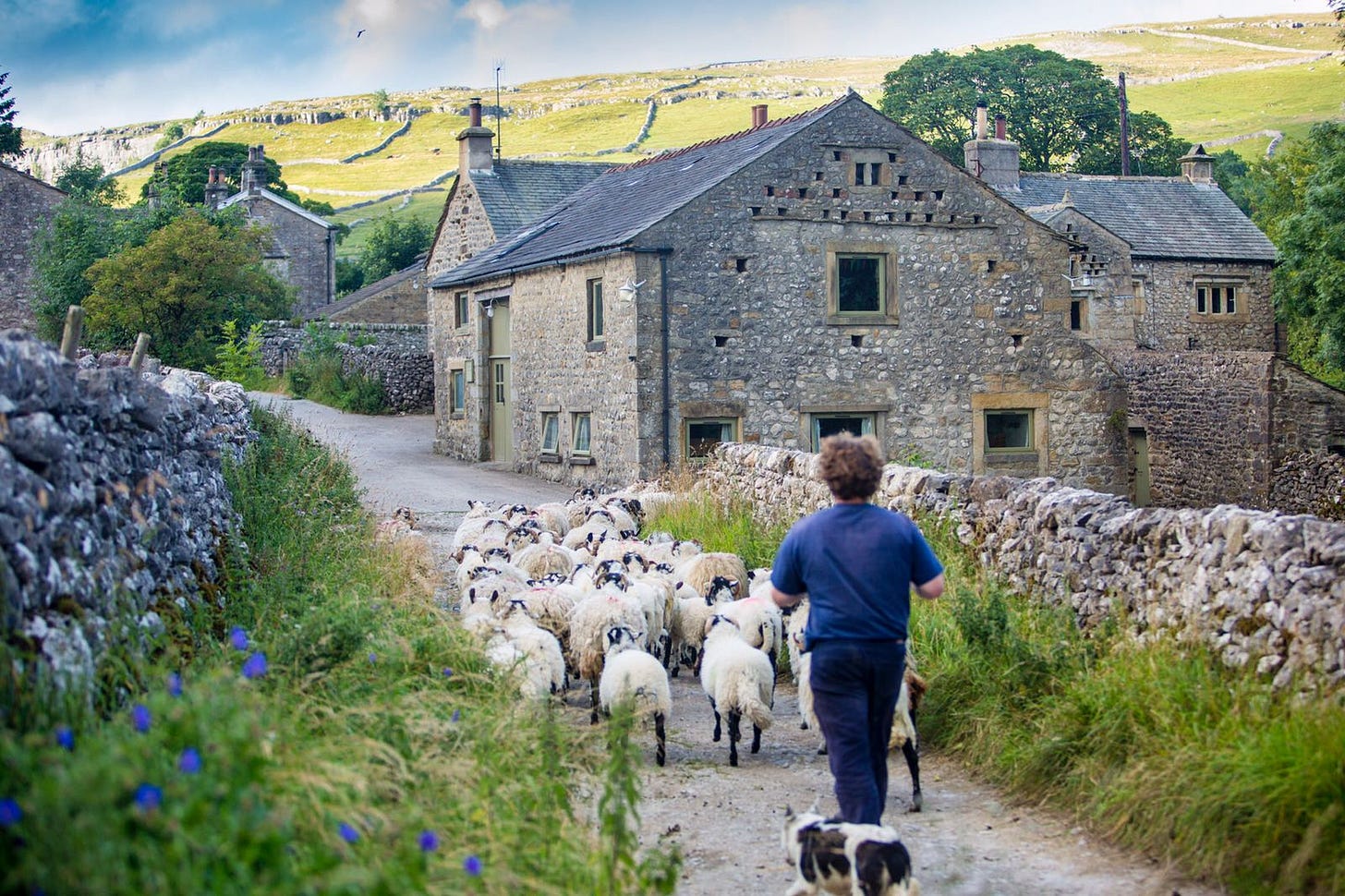James Herriot's son condemns the UK's attack on farms
(An interview with Ayaan Hirsi Ali on Courage to Save the West & other stories.)
Hello all,
A few columns and an interview for you today.
At The Bridgehead: “Russia, “abortion culture,” and our civilizational suicide pact.” Excerpt:
Legalizing abortion, as it turns out, is a civilizational suicide pact; it creates the illusion of a sexually revolutionary society as long as we collectively ignore the looming expiration date. For a time — even several generations — societies can carry on as if the party will last forever, even as the cribs empty and the dumpsters behind abortion clinics fill up. But childless societies are living on borrowed time, and eventually we must face the awful realization that our childless future looks much, much different than the present we purchased with the blood of the children we threw away. A choice for an abortion culture in the present is the choice for no culture in the future.
For my latest essay at First Things, I spoke with Jim Wight, the son of James Herriot, about the Labour Party’s attack on rural culture. I spent some time with Jim in Thirsk earlier this year for a print essay published in the Fall edition of The European Conservative on James Herriot’s Yorkshire, which I will post once it goes online: “James Herriot’s Son Condemns Keir Starmer’s Attack on Farms.” Excerpt:
If James Herriot was alive now, he would be horrified by what this prime minister is doing. I’m speaking for him, really,” Jim Wight told me. As the son of world-famous Yorkshire vet and All Creatures Great and Small author Alf Wight—known to the public as James Herriot—Wight should know. Wight, now eighty-one, was also a vet and worked alongside his father for many years. He believes that U.K. prime minister Keir Starmer’s proposed 20 percent inheritance tax on farms, which were previously exempt, will be the death knell for both family farms and rural culture.
At The Bridgehead: “Slovakia’s LGBT culture war.”
I also have an interview with the great Ayaan Hirsi Ali, who has just launched a new venture called Courage Media. I’ve been reading Ayaan for years—famously, she lives under an Islamic “fatwa,” or death threat, and one such threat was stabbed into the chest of Dutch filmmaker Theo Van Gogh, who was murdered for working with her on a documentary on the treatment of women in Islamic societies. For a time, she was part of the New Atheist set; recently, she converted to Christianity. Our conversation:
As always, follow the podcast wherever you get your content, if interested! Apple Podcasts, Spotify, Rumble, or YouTube.
I also have a number of short culture updates at The Bridgehead, and if you’re interested in a copy of my new book How We Got Here: A Guide to Our Anti-Christian Culture, you can buy it at Amazon.com, Amazon.ca, or at The Bridgehead.





Well said, thank you for standing with farmers. They are the backbone of the country.
Great piece and thank you for writing on this Jonathon.
This incredibly short-sighted tax by the Starmer administration that threatens the very fabric of our countryside, as small farms holding together the aesthetic imagery we know and love, and generally farm in ways which re far more ecologically friendly than big industrial farms.
What's more, this tax threatens to extinguish the age-old and time-matured wisdom of the land that has been passed down from generation to generation. Once lost, this wisdom cannot be recovered as it is inherently place (and family) based. One that places changes into new (and likely industrial) hands, the wisdom is gone. Starmer and Reeves thus are brazenly going down a path which will see many of the best land stewards removed from the countryside and their lands. The implications for this are seismic.
One fears, though, that there is some degree of ideology behind this (one former Labour special advisor saying we don't need small farmers and that we should do to farmers what the conservatives did to the miners). One fears that Labour considers farmers and the countryside as a socially conservative domain (after the legacy of Scruton) and thus see small farms as a potential battle ground to settle old scores. Plus, one cannot discount that Labour considers small farmers as inefficient - and would rather see industrial farmers take over their lands to make the practice more efficient, never midnight he ecological, social and cultural collateral damage.
Future generations will hold this govemernment to account for their desecration.